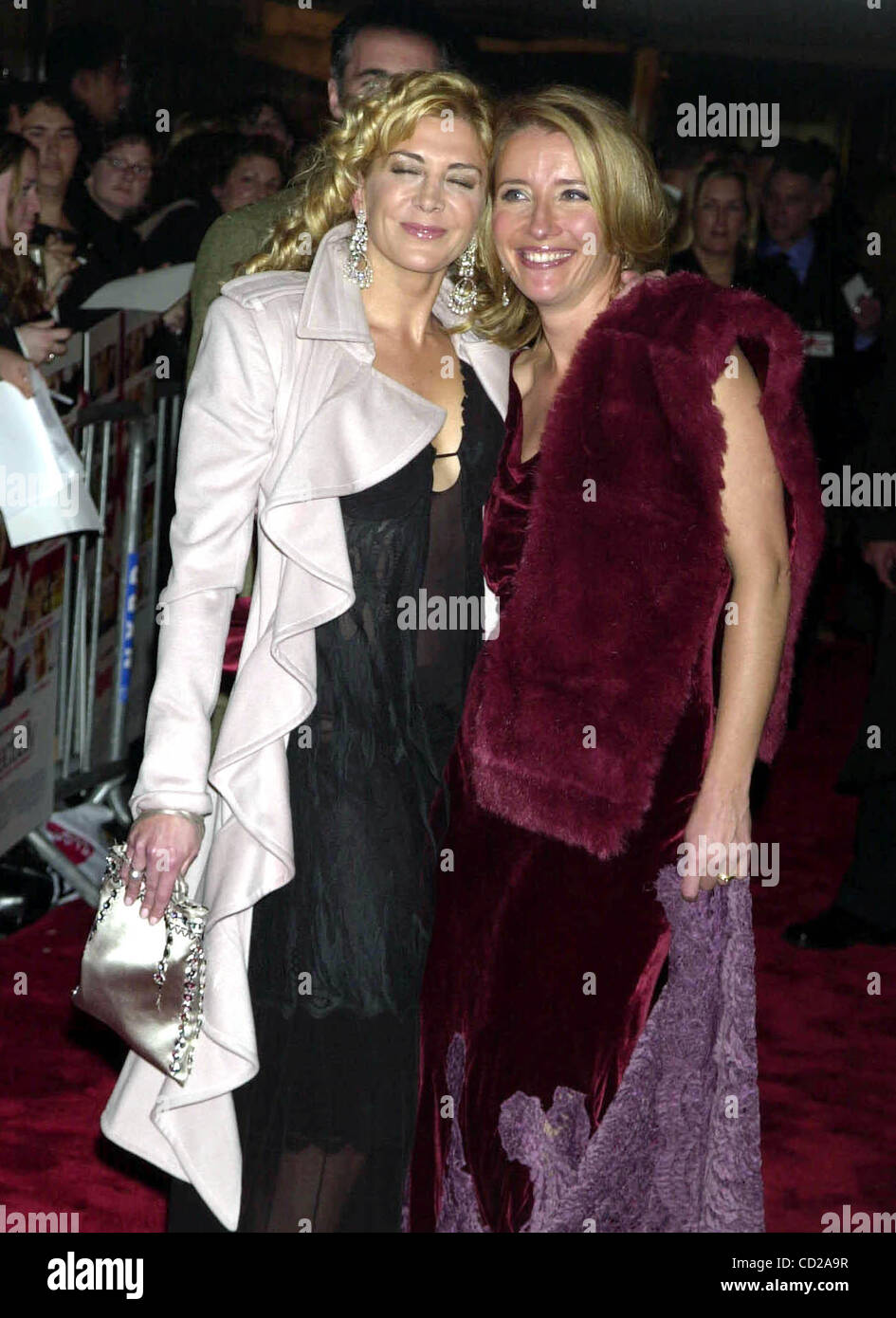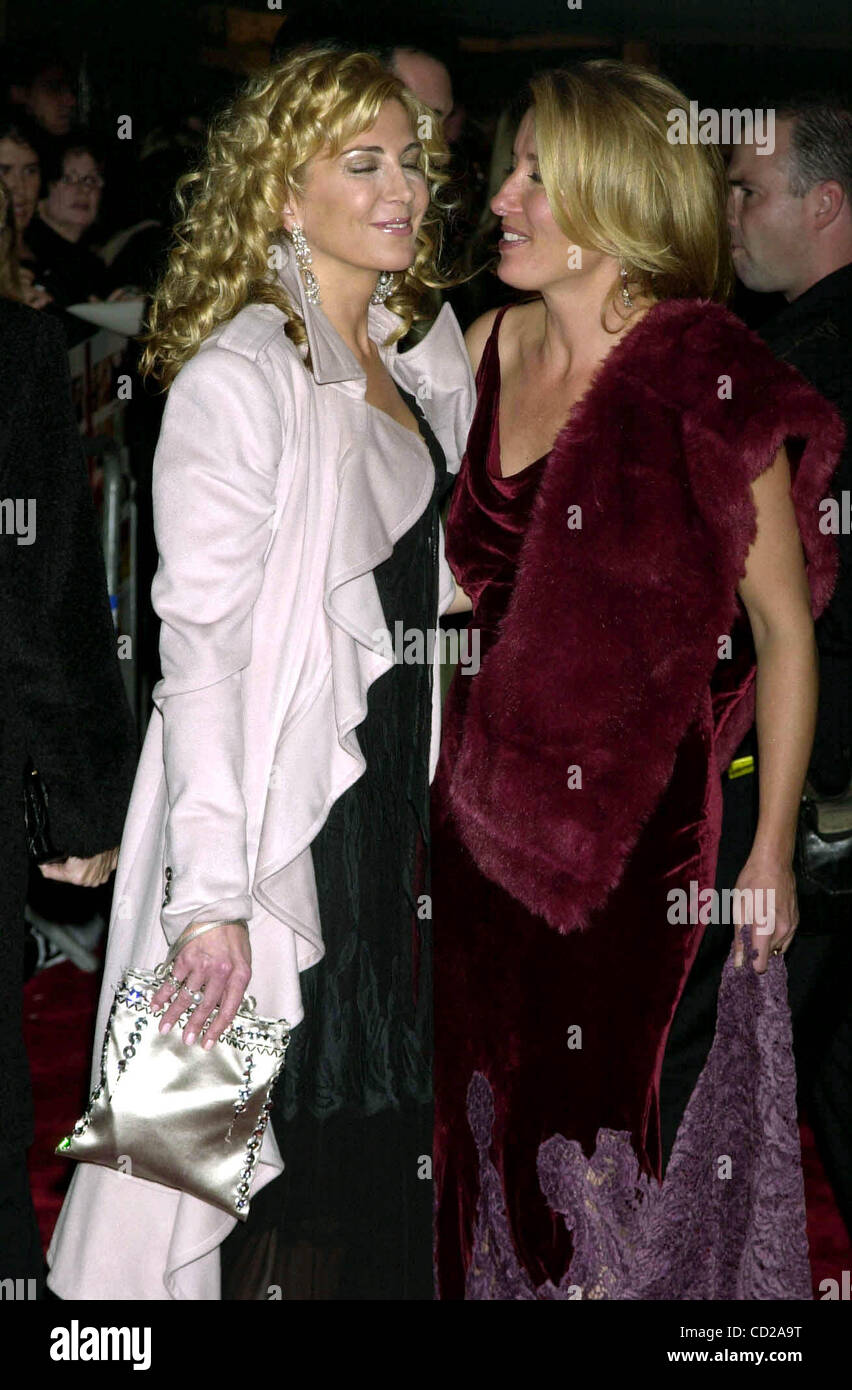A Tale Of Two Talented Actresses
When discussing the realm of British cinema, the names Natasha Richardson and Emma Thompson often arise in conversation, both embodying grace, talent, and an undeniable screen presence. Their careers, while intertwined through their shared profession, have taken distinct paths, each showcasing unique strengths and contributions to the world of acting. From theatrical roots to Hollywood fame, both actresses have left an indelible mark on audiences worldwide.
As we delve deeper into the lives and careers of these two remarkable women, we will explore not only their artistic accomplishments but also their personal journeys. How did their backgrounds and experiences shape their respective careers? What lessons can we learn from their stories? Join us as we navigate the intricate tapestry of Natasha Richardson and Emma Thompson, examining their similarities and differences.
In this article, we will analyze their biographies, notable works, and the impact they’ve had on the film industry. We will also compare their acting styles, awards, and legacies, providing a comprehensive look at Natasha Richardson vs Emma Thompson. Whether you’re a fan of one or both, you’re sure to find insights that deepen your appreciation for these talented actresses.
Who Was Natasha Richardson?
Natasha Richardson was a celebrated British actress born on May 11, 1963, into a prestigious theatrical family. She was the daughter of actress Vanessa Redgrave and director Tony Richardson. Natasha's upbringing in the performing arts set the stage for her own successful career. She became known for her roles in both film and theater, with notable performances in productions like "The Parent Trap" and "Anna Karenina." Tragically, her life was cut short in 2009 when she died from a skiing accident in Canada, leaving behind a legacy that continues to inspire.
| Detail | Information |
|---|---|
| Date of Birth | May 11, 1963 |
| Place of Birth | London, England |
| Parents | Vanessa Redgrave, Tony Richardson |
| Notable Works | "The Parent Trap," "Maid in Manhattan," "The Lady from Dubuque" |
| Death | March 18, 2009 |
Who Is Emma Thompson?
Emma Thompson, born on April 15, 1959, is another luminary in the field of acting and screenwriting. With a distinguished lineage as the daughter of actor Eric Thompson and actress Phyllida Law, Emma honed her craft at Cambridge University, where she became involved in the theatrical scene. Her career boasts an impressive array of accolades, including two Academy Awards, multiple BAFTAs, and Golden Globes, thanks to her versatility in roles ranging from "Sense and Sensibility" to "Love Actually." Emma is also known for her witty writing and advocacy work, making her a beloved figure both on and off-screen.
| Detail | Information |
|---|---|
| Date of Birth | April 15, 1959 |
| Place of Birth | Paddington, London, England |
| Parents | Eric Thompson, Phyllida Law |
| Notable Works | "Sense and Sensibility," "Nanny McPhee," "The Remains of the Day" |
| Awards | 2 Academy Awards, 3 BAFTA Awards, 2 Golden Globes |
What Are Their Notable Film Roles?
Both Natasha Richardson and Emma Thompson have graced the silver screen with memorable performances. In examining Natasha's filmography, we see standout roles in:
- "The Parent Trap" (1998): A charming performance as the mother of the twins, showcasing her ability to connect with audiences through warmth and humor.
- "Maid in Manhattan" (2002): A romantic comedy where she played a pivotal role opposite Jennifer Lopez, further establishing her versatility.
- "The Comfort of Strangers" (1990): A haunting portrayal that demonstrated her range in more dramatic roles.
Emma Thompson has also left an indelible mark with her impressive body of work, including:
- "Sense and Sensibility" (1995): Winning an Academy Award for her screenplay, she also starred as Elinor Dashwood, perfectly embodying grace and intelligence.
- "Love Actually" (2003): A heart-wrenching performance as a woman grappling with love and betrayal, illustrating her emotional depth.
- "Nanny McPhee" (2005): In addition to starring in this family film, she also wrote and produced it, showcasing her multifaceted talent.
How Did Their Careers Differ?
While both actresses have made significant contributions to the film industry, their career trajectories have been quite different. Natasha Richardson was primarily known for her stage presence and emotional performances, whereas Emma Thompson has excelled in both acting and screenwriting. Natasha often brought a sense of vulnerability to her roles, while Emma is celebrated for her wit and adaptability.
What Awards Have They Won?
A comparison of their awards showcases their individual successes. Natasha Richardson received several accolades, including:
- Evening Standard Theatre Award for Best Actress
- Tony Award for Best Actress in a Musical
On the other hand, Emma Thompson's extensive list of awards includes:
- 2 Academy Awards (Best Actress and Best Adapted Screenplay)
- 3 BAFTA Awards
- 2 Golden Globe Awards
What Is Their Impact on the Film Industry?
The impact of Natasha Richardson vs Emma Thompson on the film industry is profound. Natasha's contributions to theater and her ability to convey complex emotions on screen have inspired countless actors. Emma's dual prowess in acting and writing has paved the way for more women in film, showcasing the importance of female voices in storytelling.
How Have They Influenced Future Generations?
Both actresses have influenced future generations of performers. Natasha's commitment to her craft and her tragic story serve as a reminder of the fragility of life and the importance of pursuing one's passion. Emma's successful career as a writer and actress encourages aspiring artists to explore multiple avenues of creativity. Their legacies continue to inspire young actors and filmmakers, demonstrating the power of storytelling.
What Legacy Do They Leave Behind?
In conclusion, the legacy of Natasha Richardson vs Emma Thompson is one of talent, resilience, and inspiration. Natasha's early departure from this world leaves us with a sense of loss, yet her contributions to film and theater are timeless. Emma, on the other hand, continues to thrive in her career, advocating for important causes and creating memorable characters. Together, they represent the diverse and rich landscape of British cinema, showcasing the importance of both emotional depth and storytelling finesse.
As we reflect on the lives of these two remarkable actresses, we celebrate their achievements and the impact they have made on audiences around the globe. Their stories remind us of the power of art to connect, inspire, and transform lives.



ncG1vNJzZmivp6x7s7HBnqOrmZ6YtbjFzmeaqKVfmLq0v9JopZqskai1onnRopqhmaKZwLC6jK%2BqZp2doq5uwMeopKmrn6N7qcDMpQ%3D%3D